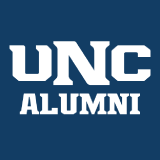Career Expertise from the Bear Network
A job search can feel overwhelming. You may feel like your employment prospects are left up to chance when you submit an online application. But understanding the online system that companies use to recruit and hire talent - an Application Tracking System (ATS) - may help you gain an edge in your employment search. UNC alumnus and healthcare human resource executive Rob Thorne, MHR, PHR shares his ATS tips and tricks to help you get ready and get noticed.
- Pay attention to the job description. Are you actually qualified for the job? In a hospital environment, we have to pay strict attention to the regulatory side of the job description. If a license is required…you need to have it. Otherwise, we have to move on.
- Do I need to attach a cover letter? This sounds fundamental, but truly sets you apart from someone “just filling in the blanks.” A cover letter is your opportunity to tell your story and more importantly, tells the employer. Organizational culture and fit matter to both employees and employers – look at the organization’s mission and values on their website to see if there is an opportunity for you to develop an authentic purpose or “mission” statement or summary demonstrates how you personally align to what the company stands for. You can include this on your resume or as part of your cover letter.
- Keywords matter (and set you apart technically). I typically look at the job description and find keywords in the requirements that match my skills and call them out. The nature of an ATS to correlate the number of keywords on your resume and match them to the job description. Inside tip: I have a section on my resume that has key words in it and I sub them out when applying for specific jobs.
- Your application should include the last 7-10 years of work experience. Be concise in how your describe your function, responsibilities and contributions at each employer on your work history.
- Check your work (for errors and correct information). When you parse in a resume, sometimes things get lost in translation. Make sure it comes across accurate. Maybe have a friend look it over for you.
- Maintain one candidate profile per company. By nature, your profile is an electronic submission. Our system actually pulls data from your application to feed downstream systems like payroll and benefits. Having multiple submissions can cause errors downstream.
- Did you answer every field? Make sure you don’t leave blanks!
- Does your social profile share something your mom would be embarrassed by? Companies are now encouraging candidates to include professional information from their social profiles, typically LinkedIn, Google+, or Facebook, within their online application process. We look!
- Don’t include a photo. Applicant tracking systems are designed to ensure every applicant receives equal, unbiased consideration based on their experience and qualifications.
- Opt in for job alerts so you know when jobs that you may qualify for become available.
- Fonts matter. Use a clean, common and easy-to-read font like Helvetica, Arial, Calibri or Times.
- Create a professional profile on LinkedIn so that you can easily connect to people who may work where you would like to secure employment. This is critical during networking.
Some extra thoughts…
Uploading your resume to LinkedIn, Indeed, along with sites like Monster, CareerBuilder and any professional associations you belong to is also a good idea, as many employers purchase database access to search for qualified talent. Today’s applicant tracking systems are more robust and some even pull in job seeker profiles from popular job seeker resources employers subscribe to.
Try not to feel discouraged if you don’t receive a personal call from a recruiter after your phone screen or interview and are not moving forward in the process. While every recruiter would love to make that one to one connection, the volume of resumes they must screen and number of jobs they are working to fill (especially with a large company) doesn’t always make it possible for them to connect with every candidate.
If you don’t get the job you want the first time, keep applying, networking and building connections to help you make inroads into the companies you want to work for.

About Rob Thorne, MHR, PHR
Rob is a Director of Human Resources for Aurora Public School District in Aurora, CO. Previously he served as Director of Human Resources at St. Anthony Hospital in Lakewood, CO. He has extensive experience in all aspects of HR management, including personnel management, HRIS technology, budgeting and fiscal control, and performance management. Rob earned a bachelor of science in business, emphasis in human resources from UNC's Kenneth W. Monfort College of Business.
(originally published in 2019, updated 2021)


